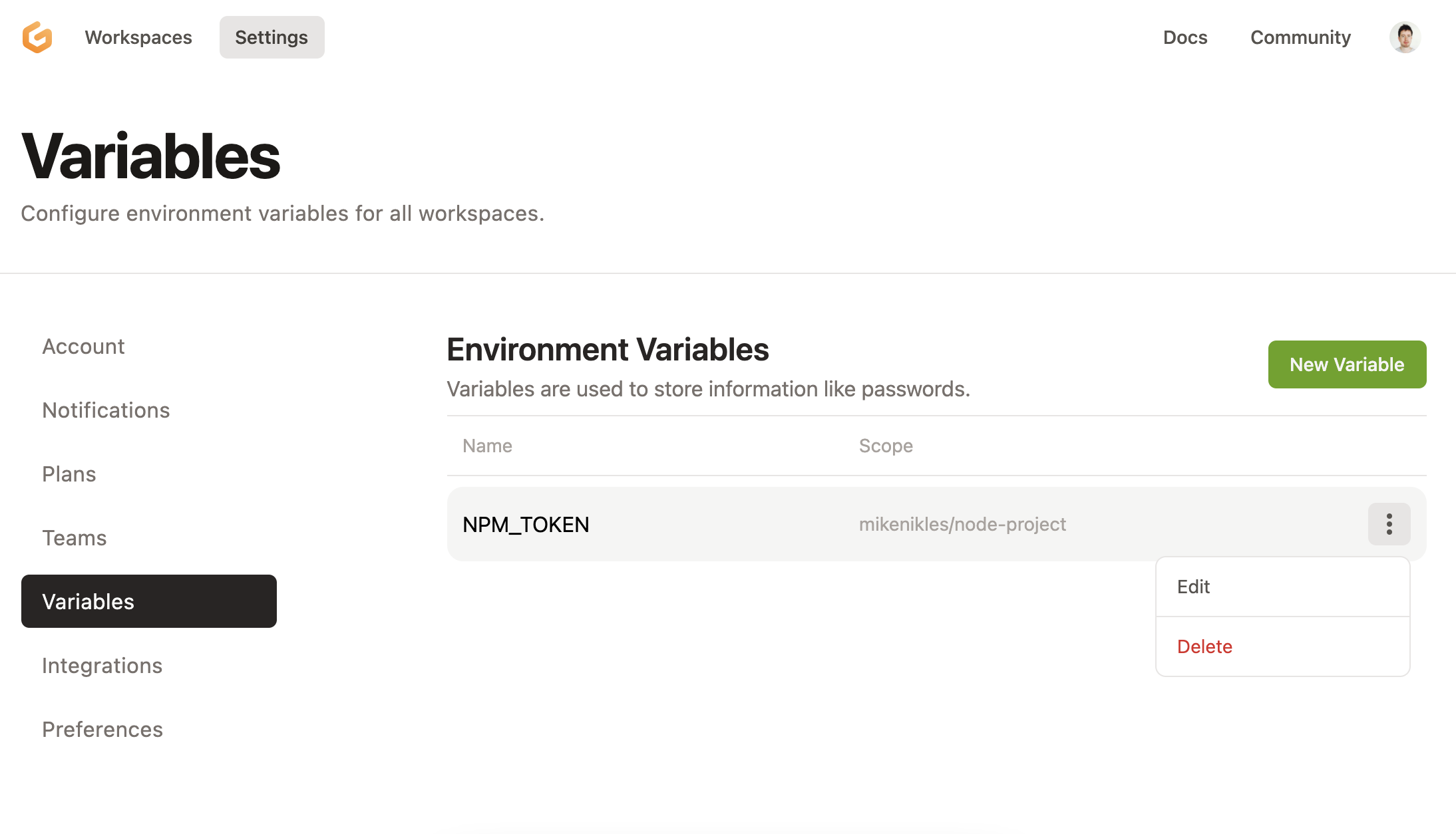Beta Docs
Welcome to the next version of the docs 🎉. We are actively working on this page, please provide feedback on GitHub 🙏.
Environment Variables
You can pass environment variables into your workspace.
Default Environment Variables
The following environment variables are set automatically by Gitpod and are guaranteed to exist:
GITPOD_WORKSPACE_ID: The Universally Unique Identifier (UUID) associated with the workspace.GITPOD_WORKSPACE_URL: The unique URL of the workspace.
Reserved Prefix
Environment variables beginning with the prefix GITPOD_ are reserved for internal use by Gitpod and are overridden on every workspace startup. This means that a user-defined variable set with the name GITPOD_FOOBAR will be ignored and not accessible in the workspace.
User-Specific Environment Variables
Gitpod supports encrypted, user-specific environment variables. They are stored as part of your user settings and can be used to set access tokens, or pass any other kind of user-specific information to your workspaces.
Using the command line: gp env
The gp CLI prints and modifies the persistent environment variables associated with your user for the current repository.
To set the persistent environment variable foo to the value bar use:
gp env foo=barBeware that this does not modify your current terminal session, but rather persists this variable for the next workspace on this repository.
gp can only interact with the persistent environment variables for this repository, not the environment variables of your terminal.
If you want to set that environment variable in your terminal, you can do so using -e:
eval $(gp env -e foo=bar)To update the current terminal session with the latest set of persistent environment variables, use:
eval $(gp env -e)To delete a persistent environment variable use:
gp env -u fooNote that you can delete/unset variables if their repository pattern matches the repository of this workspace exactly. I.e. you cannot delete environment variables with a repository pattern of /foo, foo/ or /.
Usage:
gp env [flags]
Flags:
-e, --export produce a script that can be eval'ed in Bash
-h, --help help for env
-u, --unset deletes/unsets persisted environment variablesUsing the account settings
You can also configure and view the persistent environment variables in your account settings.

You can add as many environment variables as you wish.
The repository pattern of each variable determines in what workspace it will be available.
Repository patterns follow the repo/owner pattern. You can use a wildcard on either of the two, e.g. gitpod-io/* would make that variable available in all repositories owned by gitpod-io.
Conversely */vscode would make that variable available on all repositories called vscode; this is especially useful for forks.
Subsequently */* makes that variable available in every workspace.
Beware: while the variable values are stored encrypted, they are available as plain text inside a workspace. Be careful when sharing your live workspace or when using
*/*as repository pattern.
Passing In Environment Variables
In addition to user-specific env variables, Gitpod also allows passing in variables through the gitpod.io/# URL.
The syntax for that is:
https://gitpod.io/#var=value,var2=value2/https://github.com/my-org/repo-to-work-onThe values are URL encoded to allow any non-ascii characters in values.
In case of a conflict, e.g. in the example above if the user already had a variable var2 set, the user’s value would be used.